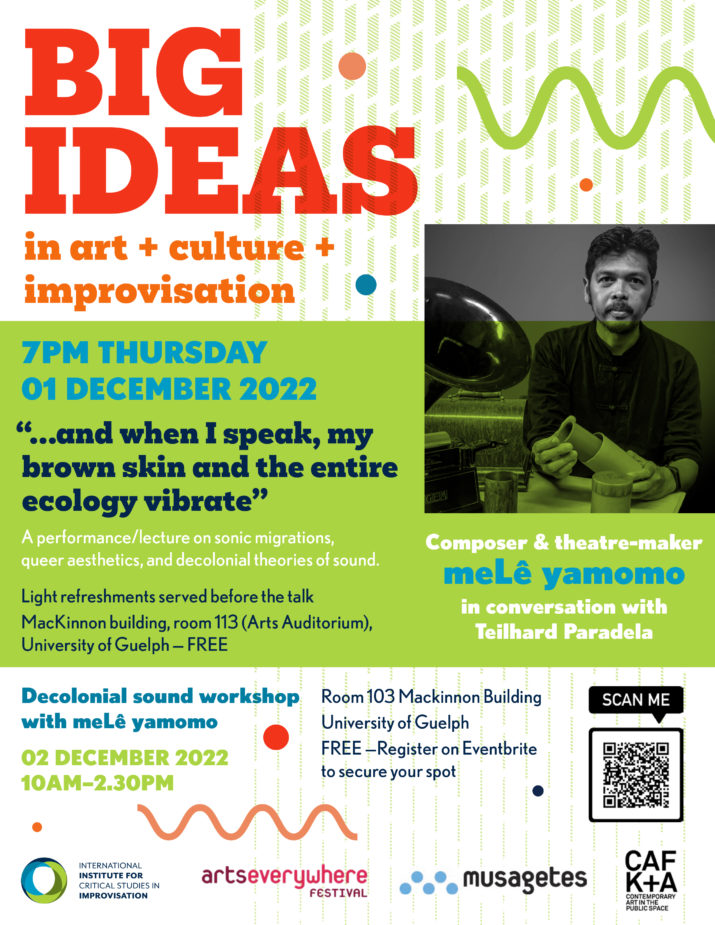
- This event has passed.
Workshop with meLê yamomo: “Post:Migrant Presences”
December 2, 2022 @ 10:00 am - 2:30 pm

Friday, December 2 // 10am – 2:30pm EDTRegistration limited—sign up here!8/15 spots reserved for BIPOC participantslunch providedUniversity of Guelph103 Mackinnon Building87 Trent Lane
How can ‘presence’ interrupt dominant aesthetics? How could the inhabiting of the here and now be a revolutionary act? If history is a musical score of modernity or a play script of colonial conquest, how can improvisation be a radical act of decoloniality?
This workshop explores how ‘presence’ constitutes aesthetic experience, and how the aesthetic reshifts how we compose or order the world. In understanding our movements, mobilities, and presences within social, geographical, and historical spaces, how might our improvisation radically shift history? Parousia, according to philosopher Hans-Georg Gadamer is the state of absolute presence—the timelessness of an experience despite and within its multiple repetitions in art and performance. In suspending time through parousia, how can we decolonize fixed scores and deterministic dramaturgies to improvise and migrate our present to new futures?
MORE ABOUT OUR SPEAKERS
MELÊ YAMOMO
meLê yamomo lived in Lucena City, Los Baños, Metro Manila, Seoul, Bangkok, Warwick, and Munich, and now inhabits Amsterdam and Berlin researching, teaching, and creating performance/theatre and sound/music. He is Assistant Professor of Performances Studies, Sound Studies, Artistic Research and Decoloniality at the University of Amsterdam, the author of Sounding Modernities: Theatre and Music in Manila and the Asia Pacific, 1869-1946 (Palgrave Macmillan, 2018), and project leader and principal investigator of the projects »Sonic Entanglements« and Decolonizing Southeast Asian Sound Archives (DeCoSEAS). meLê is resident artist at Theater Ballhaus Naunynstrasse where his creations Echoing Europe, sonus, and Forces of Overtones are on repertoire. meLê also curates the Decolonial Frequences Festival and hosts the Sonic Entanglements podcast.
TEILHARD PARADELA
Teilhard Paradela (they/them) works as a policy maker, community leader, historian, archivist, and dramaturge. They immigrated from the Philippines to Canada, where they settled (uninvited), studied, worked, and grew up in the unceded, ancestral, and traditional territories of the Musqueam, Squamish, and Tsleil-Waututh Nations, otherwise known as Vancouver, British Columbia.







